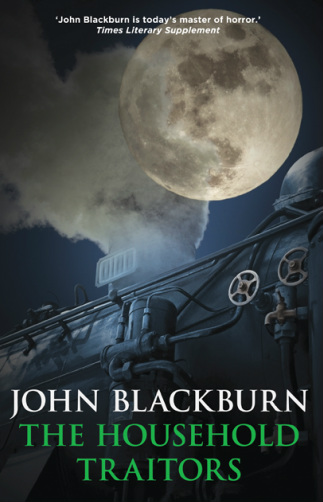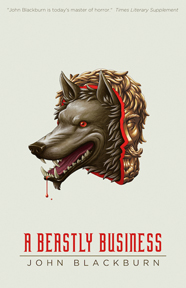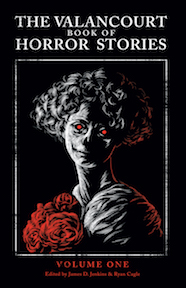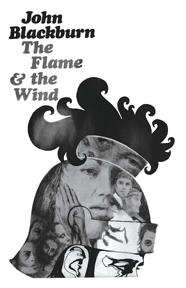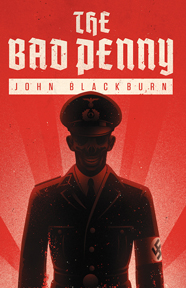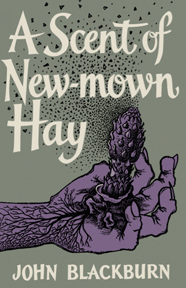|
BOOK DETAILS
Trade paper ISBN-13: 978-1939140838 List Price: $16.99 U.S. Pages: 162 Published: 2013 |
The Household Traitors (1971)
John Blackburn Book Description
‘Come back Paddy Reilly to me’ - the words of an old Irish ballad provide a sinister theme for John Blackburn’s sixteenth novel, The Household Traitors (1971). No one has seen or heard from Patricia Reilly in more than thirty years, so why are a ruthless industrial tycoon, a Soviet defector, and a deranged serial killer all so anxious to find her? The trail of mystery leads from a town terrorized by murder to a remote railway station in North Wales, where the action reaches a climax aboard a runaway steam train. Along the way, a hijacked aircraft, a corpse in a safe, and a number of strangled women with something strange in common provide some of the clues, but the final secret is reserved for the last pages of this ingenious thriller. This is the first-ever reprint of The Household Traitors, a page-turner with a ‘strong Grand Guignol finish’ (The Guardian) by ‘today's master of horror’ (Times Literary Supplement). |
reviews
‘Our only current writer who can induce such terror as the Grimm Brothers did.’ – Times Literary Supplement
‘Lots of unguessable surprises.’ – The Observer
‘He is certainly the best British novelist in his field and deserves the widest recognition.’ –Penguin Encyclopedia of Horror and the Supernatural
‘[A] stylish, genuinely chilling author . . . He can be depended upon to sustain swift, sure, exciting, and absorbing stories . . . undoubtedly one of England's best practicing novelists in the tradition of the thriller novel.’ – St James Guide to Crime & Mystery Writers
‘Lots of unguessable surprises.’ – The Observer
‘He is certainly the best British novelist in his field and deserves the widest recognition.’ –Penguin Encyclopedia of Horror and the Supernatural
‘[A] stylish, genuinely chilling author . . . He can be depended upon to sustain swift, sure, exciting, and absorbing stories . . . undoubtedly one of England's best practicing novelists in the tradition of the thriller novel.’ – St James Guide to Crime & Mystery Writers
ALSO AVAILABLE THROUGH ONLINE RETAILERS
|
PAPERBACK
Amazon US Amazon UK Barnes and Noble Wordery* *free shipping to 40 countries Fishpond* *free shipping worldwide Waterstones |
MORE TITLES BY THIS AUTHOR
SEE THE COMPLETE LIST OF TITLES HERE
AUTHOR BIOGRAPHY
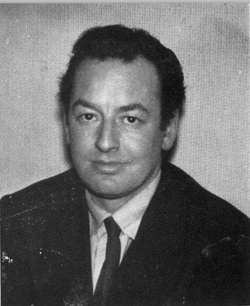
John Blackburn was born in 1923 in the village of Corbridge, England, the second son of a clergyman. He started attending Haileybury College near London in 1937, but his education was interrupted by the onset of World War II; the shadow of the war, and that of Nazi Germany, would later play a role in many of his works. He served as a radio officer during the war in the Mercantile Marine from 1942 to 1945, and resumed his education afterwards at Durham University, earning his bachelor’s degree in 1949. Blackburn taught for several years after that, first in London and then in Berlin, and married Joan Mary Clift in 1950. Returning to London in 1952, he took over the management of Red Lion Books.
It was there that Blackburn began writing, and the immediate success in 1958 of his first novel, A Scent of New-Mown Hay, led him to take up a career as a writer full-time. He and his wife also maintained an antiquarian bookstore, a secondary career that would inform some of Blackburn’s later work. A prolific author, Blackburn would write nearly 30 novels between 1958 and 1985; most of these were horror and thrillers, but also included one historical novel set in Roman times, The Flame and the Wind (1967). He died in 1993.
It was there that Blackburn began writing, and the immediate success in 1958 of his first novel, A Scent of New-Mown Hay, led him to take up a career as a writer full-time. He and his wife also maintained an antiquarian bookstore, a secondary career that would inform some of Blackburn’s later work. A prolific author, Blackburn would write nearly 30 novels between 1958 and 1985; most of these were horror and thrillers, but also included one historical novel set in Roman times, The Flame and the Wind (1967). He died in 1993.

